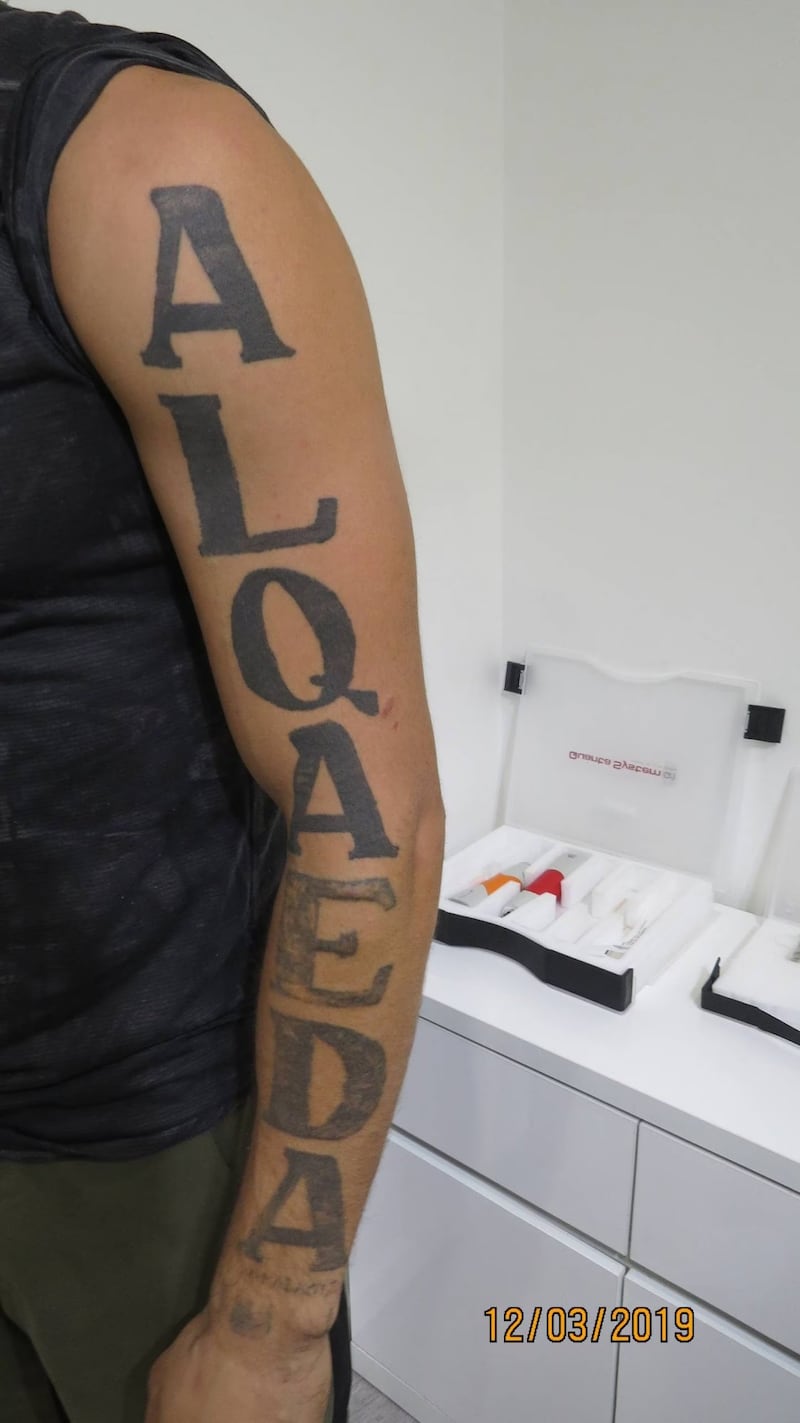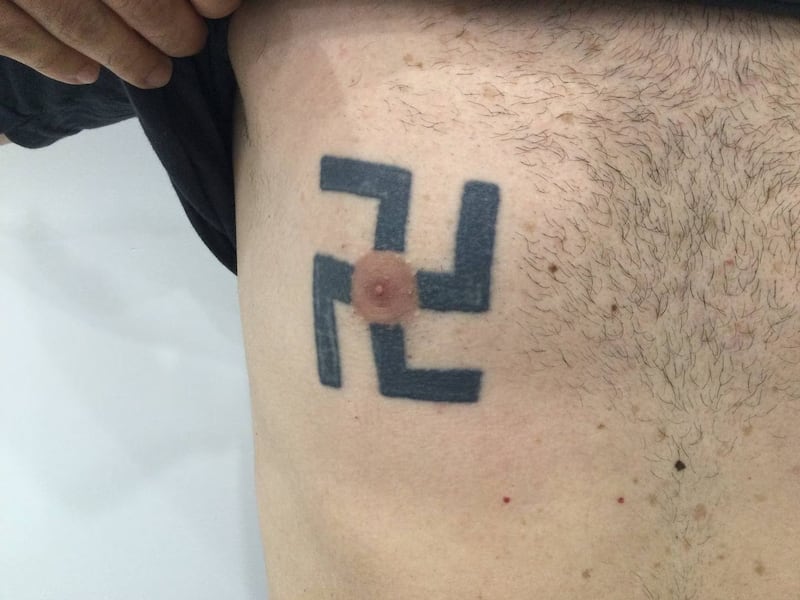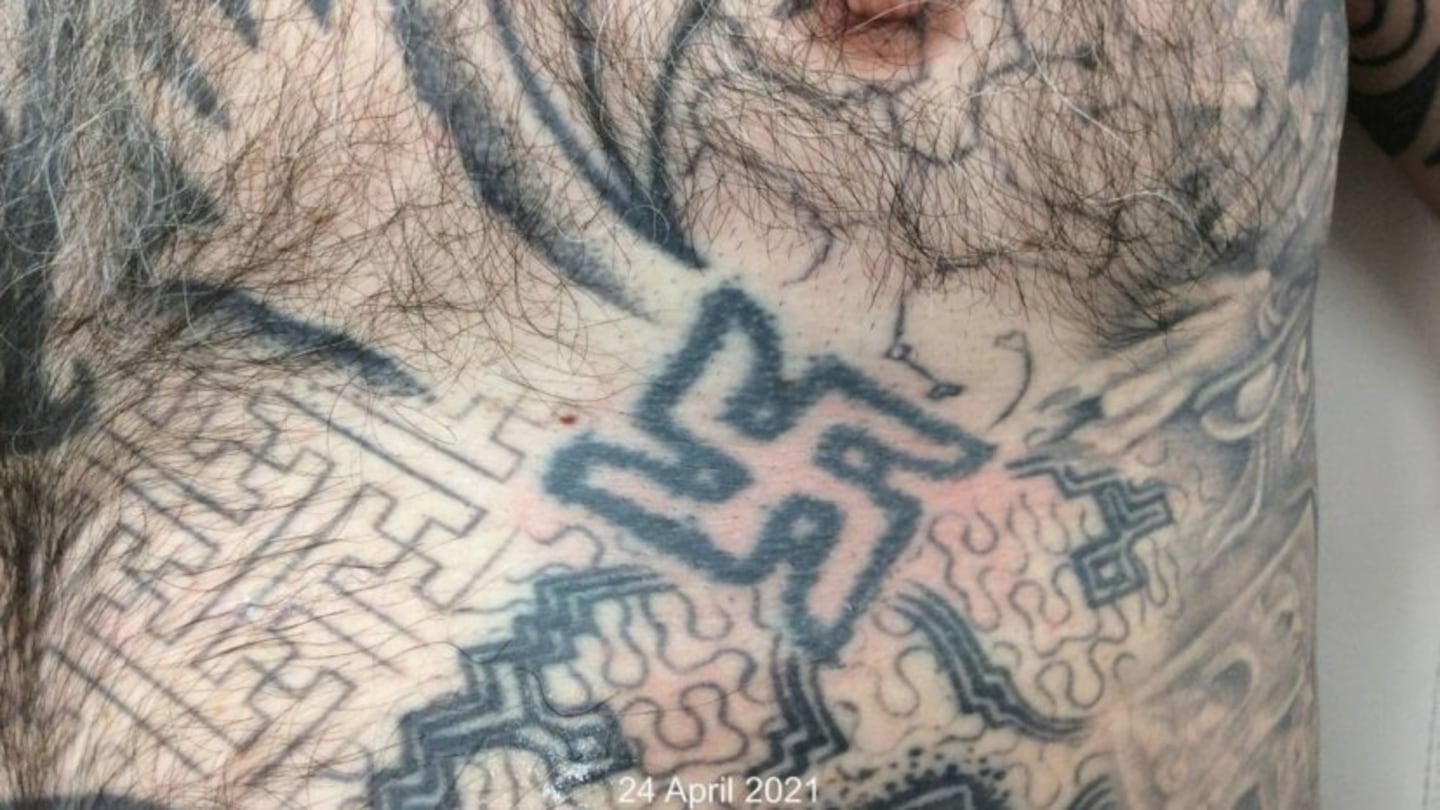A new initiativeis being offered for tattooed people to reverse extremist or hate-related tattoos. Photo / Supplied
A new charitable initiative has been launched to reduce the number of racist, hate-related and extremist tattoos worn in New Zealand society.
The new Chance for Change programme will offer Kiwis with tattoos featuring racist symbols, images, hate-related words and slogans or extremist ideologies free removal.
Research suggests one in five adult New Zealanders - around 800,000 people - has at least one tattoo. Industry experts say around a tenth of those are seeking to have them removed and approximately 800 of these will be classified as promoting racism or hate.
Experts say the removal of offensive tattoos can cost up to tens of thousands of dollars and could be a barrier to progression in life, however, the new charitable initiative offers a pathway for participants to rid themselves of the last vestige of an ideology they no longer identify with.
Kiwis wanting to apply for the free removal will go through a review process, which could include discussions with probationary officers, to ensure they have genuinely changed their attitude.
It is hoped the programme will be able to support dozens of Kiwis who have made a clear change in their life, however find they are still being constantly judged and missing employment opportunities.
Mike Anderson, CEO of Think Again Laser Clinic NZ and founder of Chance for Change, says their research suggests around 80,000 Kiwis have a tattoo they want removed - and around 1 per cent of these will be ‘hate tattoos’.

Mike Anderson, CEO of Think Again Laser Clinic NZ and founder of Chance for Change. Photo / Supplied
He says they launched the initiative after treating a man who had been radicalised by Al-Qaeda while in prison on an unrelated charge.
“The programme was first launched in Australia and since its inception we have removed a number of offensive tattoos including; swastikas, anti-women, white supremacy or other racial-based slogans.
“I came up with the idea for the programme when removing some of these hardcore tattoos for clients. I found the process quite confronting. Many of my clients had chosen these designs as young men and now found themselves living with something that they no longer identified with decades later,” he said.

Wearing your colours on your sleeve. Photo / Supplied
“They said they were often judged as if this was their current belief system. I also realised that there must be many others who were living with similar tattoos but could potentially not afford to have them removed, so I started Chance for Change.
“One applicant to the programme had swastikas all over his legs and although he had been out of that lifestyle for more than ten years felt the legacy was always with him. He now had a five-year-old daughter and he had never worn shorts as a result. This guy had been riddled with self-loathing, disgust and self-doubt and he said having these tattoos removed had given him a fresh start in life,” he says.
Anderson says the company has begun a multi-million dollar launch of specialist tattoo removal clinics in main centres around New Zealand over the next two years - which will support the expansion of the programme and improve access to other forms of tattoo removal for thousands of Kiwis.
“Tattoo removal can be a very emotional decision for most of the people we see as the emotional connection to when they first got the tattoo. It may be related to matching tattoos with a best friend, an ex-partner’s name or commemoration of someone that has passed away - it can bring back intense memories.

Tats not good. Every do something stupid and immediately regretted it? Photo / Suplied
“It is a recognition that it doesn’t fit into their personality or life any more. Part of our service is also dedicated to fixing cultural or tribal tattoos where a mistake has been made in the design,” he says.
Anderson says the cost of tattoo removal starts at under $100 for a small tattoo and could increase to $50,000 to $100,000 for full-body artwork removal.
He says they have had hundreds of Kiwis fly to the clinic and clients from as far away as Dubai and Singapore and believe that New Zealand could also become a destination for cosmetic procedures for overseas visitors.
Anderson says tattoo removal is generally less uncomfortable than when tattoos are applied and takes significantly less time.
“We use a form of technology known as a picosecond laser - which targets chromophores (the part of a molecule responsible for its colour) by irradiating the skin at higher peak power and using an extremely short pulse duration.
“The Quanta Discovery Pico Plus laser breaks up the ink into microscopic particles where it can be excreted naturally by the body.
“The technology has advanced to the point where it is similar to the feel of a rubber band against the skin - and numbing cream and cooling systems are able to remove the discomfort from the immediate area.
“There are a number of variables which impact the ability to remove a tattoo, and it may take between five to 10 treatments over two to three years depending on the age of the tattoo, how deep the ink has penetrated into the skin, the colours used in the design - as well a wide range of other variables,” he says.
Anderson says they have treated 85,000 people over the past decade in their Australian clinic network, including Kiwis who fly in, and demand for the service is growing by 50 per cent each year.
“The age range of customers can vary from 18 to people in even their 80s or 90s but the most common customer would be a female in their 30s who has one to three tattoos and has just decided they aren’t for them any more.
“We will often see these designs on their wrist, foot, ankle or hip. Usually, it is something like a butterfly or some text that may have resonated with them a decade earlier but is now no longer part of how they see themselves,” he says.



